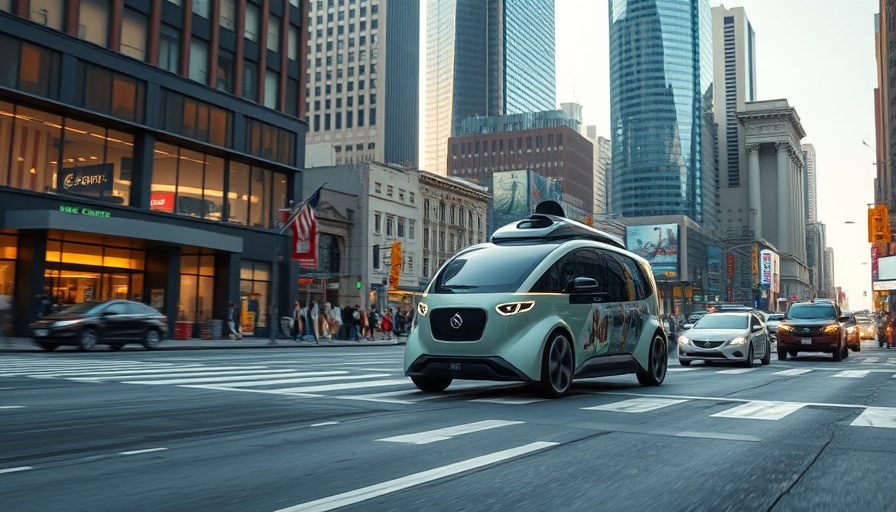
A Look at Waymo’s New Ventures in NYC
Waymo, the self-driving technology company previously part of Google, has recently made waves with its initiative to expand operations in New York City. This expansion is not just a geographical move; it marks a significant shift in strategic plans as the company aims to integrate its autonomous vehicles into the bustling metropolitan environment. The potential for success here could redefine transportation paradigms across the United States.
Nuro’s Growing Influence in Autonomous Delivery
Recently gaining momentum, Nuro has raised $203 million in its latest funding round, with significant backing from Uber. This investment not only adds more fuel to Nuro’s innovations in autonomous delivery but also indicates a growing trend where traditional ride-hailing services employ robotic deliveries as a complement to human drivers. As urban environments grapple with increasing congestion and delivery demands, Nuro's technology could be a game-changer in operational efficiency.
The Impending EV Tax Credit Expiration
This period marks a pivotal moment for electric vehicle (EV) sales in the United States as the federal EV tax credit is set to expire on September 30. With this credit being a significant motivator for buyers, the automotive market is bracing itself for a potential stall in EV sales. Automakers will need to strategize innovative customer attraction methods to mitigate any downturn related to the expiration. Given the rising environmental concerns and consumer interest in sustainability, this could be a double-edged sword for manufacturers.
Serve Robotics and AI Implementation in Delivery
In a notable development this week, Serve Robotics—a key player in the autonomous delivery sector—acquired Vayu Robotics, known for its advanced AI models. This acquisition is expected to bolster Serve’s capabilities, providing them with a simulation-powered data engine that can enhance the adaptability and efficiency of delivery processes. With the integration of AI technology, companies like Serve are setting the stage for a new era in last-mile delivery.
Global Trends and Future of Autonomous Technologies
Looking ahead, the rise of autonomous technologies could significantly impact urban landscapes and global mobility. A recent report highlights how cities worldwide are exploring the integration of autonomous vehicles as part of their transportation publics systems. Countries such as Japan and Germany are leading the charge in adopting these technologies for public safety and reducing vehicular congestion. As these developments unfold, they will undoubtedly influence legislation and consumer acceptance across various markets.
Consumer Expectations and Market Adaptation
As new technological advancements emerge, consumer education becomes imperative. Public understanding of autonomy—from ride-hailing apps like Uber to autonomous delivery via Nuro—will dictate market success. As these technologies become mainstream, manufacturers and service providers should prioritize informative campaigns that explain the benefits and how these innovations can fit into daily life.
Conclusion: Navigating the Future of Mobility
With Waymo's expansion and Nuro’s new funding, the future of mobility looks promising yet full of challenges. As the expiration of the EV tax credit looms, the industry must reflect on how to pivot towards sustainable growth while leveraging innovative technologies. As consumers, understanding these advancements is crucial to navigating the ever-evolving landscape of tech-enabled mobility.
 Add Row
Add Row  Add
Add 



Write A Comment